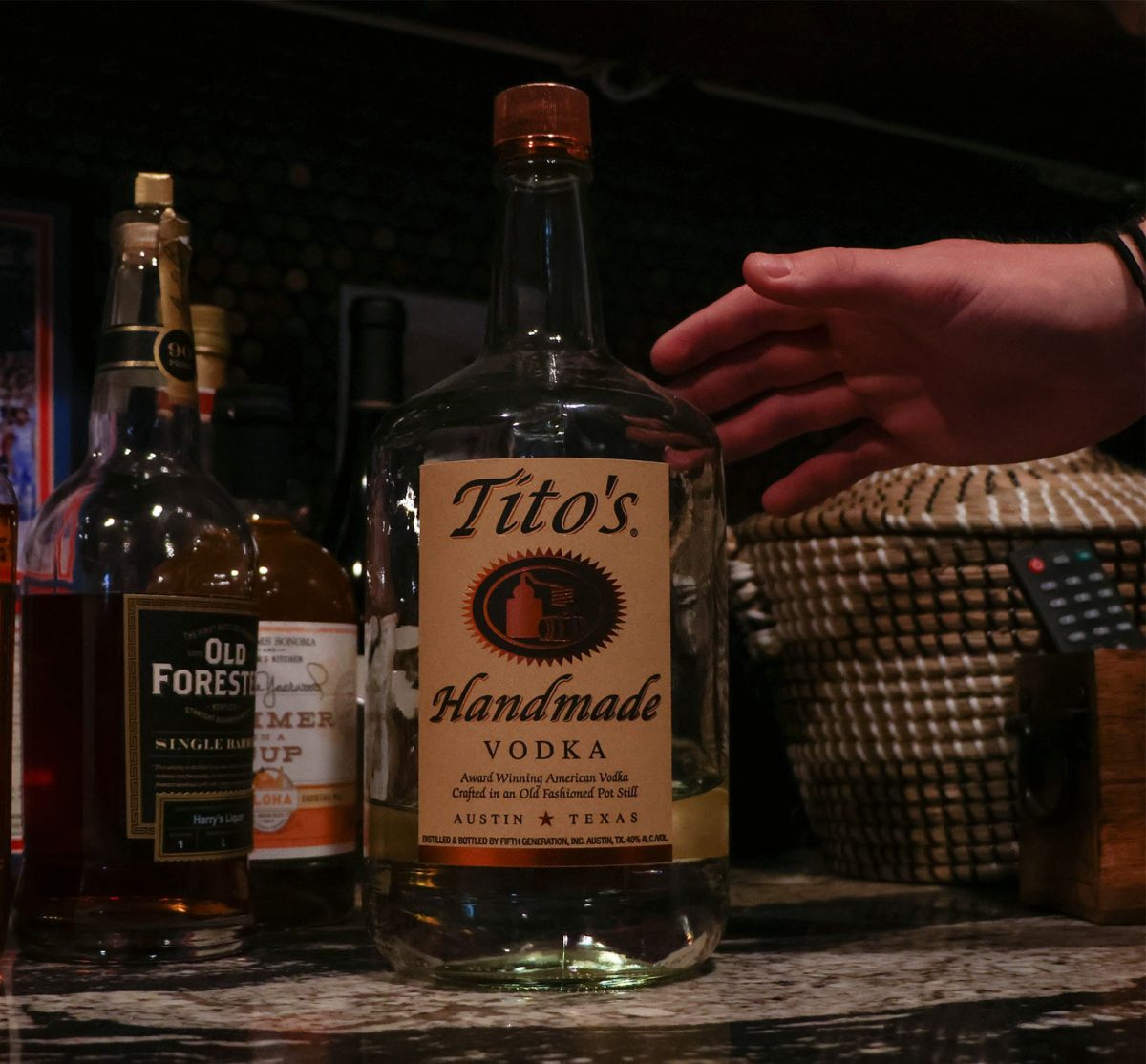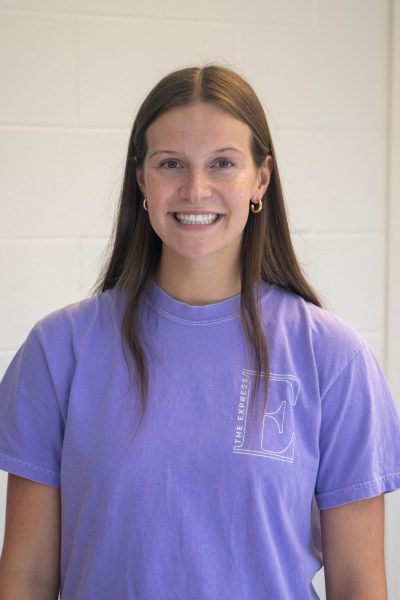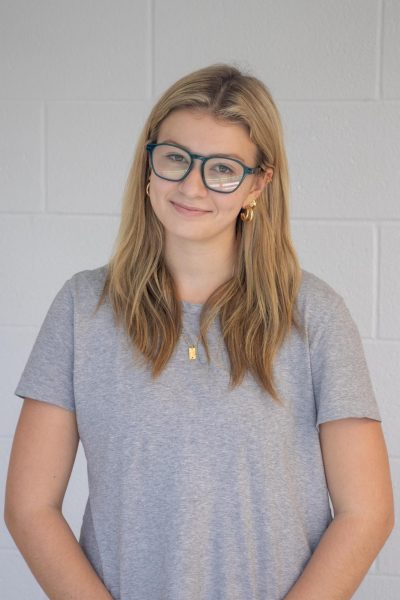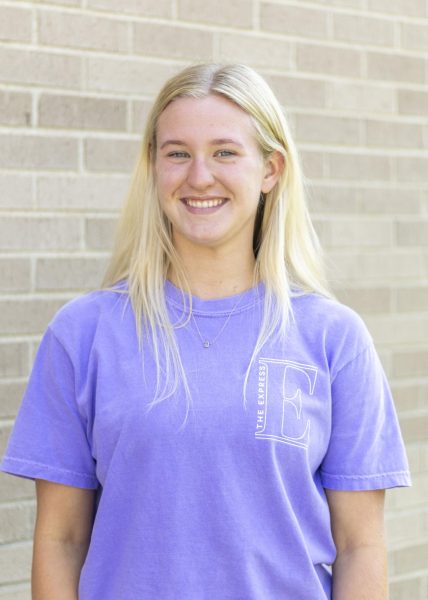Twice a week, roughly 40 individuals in the Kansas City area attend a sobriety support group run through the FullCircle program, and 30 of them are still in high school. FullCircle is a youth-based nonprofit program focused on support, education and prevention of substance abuse.
Drug use among adolescents has been discussed for years. By the time students are seniors in high school, at least 62% will have abused alcohol and 43.7% of all teens have tried marijuana, according to the National Center for Drug Abuse Statistics (NCDAS).
Max Muller is the director of the Kansas City Chapter of FullCircle. He said he became involved in the organization after successfully getting sober through similar programs.
“The vast, vast, vast majority of high school students will at least minimally experiment with drugs and alcohol,” Muller said. “We provide a safe, fun environment for young people to get sober.”
Elaborating on the specifics of the program, Muller said the strategies employed are similar to that of Alcoholics Anonymous but adapted to resonate with younger demographics.
“The 12 Steps and Alcoholics Anonymous have been around since the [1930s], and it’s a pretty tried and true way of helping people get sober,” Muller said. “We took the 12 Steps and we made them just slightly softer for young people.”
Muller said there are large differences between youth and adults that need to be considered when adapting treatment methods, especially since adults often seek recovery out of desperation.
“The first step in Alcoholics Anonymous is [admitting] ‘I am powerless over alcohol,’” Muller said.
In contrast to adults, Muller said kids are not normally the ones admitting they need help. When kids initially attend FullCircle groups, he said they often are forced by their parents or get into trouble at school, which made them start going.
Junior Corynn Miller, a former student at Northwest now attending Blue Valley Academy, said she began drinking at 12 years old. After that, she said her habits spun into a massive problem.
“It was my 13th birthday and I ended up in the hospital. I got alcohol poisoning,” Miller said. “Everything started adding up and I was just so miserable with myself and life and it seemed like the only answer to everything was substances.”
Two years later, after waking up with an IV in her arm on her 15th birthday, Miller said she knew it was time to get professional help. She said her friends recommended a program called Crossroads, so she looked into it and eventually enrolled.
Crossroads is an outpatient rehabilitation and counseling center for adolescents who struggle with drug or alcohol abuse. The program is profitable and not affiliated with FullCircle, which is a nonprofit support group, but the two programs frequently host social events together.
Being surrounded by other teens who endured the same struggles as her, Miller said Crossroads was extremely beneficial for her sobriety.
“For me, it was the first place I could really go to, and I felt safe to go to getting sober,” Miller said. “I truly don’t think I would be sober if it wasn’t for Crossroads.”
Similarly to FullCircle, Crossroads employs an adapted version of the 12 Steps to help its patients recover. Miller said that one of the most helpful steps in her journey was the very first step of the program.
“The whole first step is accepting I have a problem and being able to say that out loud,” Miller said. “I still have to think about the first step every day to remind myself of where I came from.”
Although Miller benefited from this process, everyone’s sobriety journey can look different. Some have said the methods used by FullCircle and Crossroads can be too controlling.
Blue Valley Southwest 2023 graduate Tatum Veatch, who attended Northwest for one semester during her freshman year, was a former attendant at FullCircle and said she had a negative experience with the program.
Veatch said she had many issues with FullCircle, but one of the most prominent was her not being allowed to hang out with her old friends or talk to people who were against her joining the program.
Furthermore, Veatch said she told Muller she never drank or participated in substance use when hanging out with her old friends, but he still would not let her talk to them. She said she was put on a “no social media commitment” after reaching out to one of her friends outside of the group.
“I feel like that has a lot to do with being in a cult-like group,” Veatch said. “If you go out and talk to [your old friends], they’re gonna convince you to leave that group if they see something wrong with it.”
Veatch urged people to not join the FullCircle program if they are experiencing problems with substance abuse.
“There’s so many resources out there,” Veatch said. “There’s so many places that you can go to besides FullCircle and Crossroads.”
Disputing these accusations about his program, Muller said he never controlled who his students were friends with or monitored their phone activities.
“What they do on their own time is on them, we don’t control that or try to manipulate that in any way,” Muller said. “The staff would never ever [put kids on a ‘no social media commitment’]. That is absolutely crossing the line and any sort of ethical barrier.”
Muller said that when working with teenagers in active addiction, resentment or discontent can sometimes build.
“When we confront [addiction] and we put up barriers in their ability to get drunk or high, sometimes people get resentful,” Muller said. “Our only motive is to try to provide them the tools necessary in order to stay sober long term.”
Miller said the most critical part of staying sober long-term is taking responsibility for herself and her actions.
“I kind of just made so many excuses with [my sobriety],” Miller said. “I was hurting so many people around me.”
In addition to her substance abuse harming her relationships with friends and family, Miller said her academic performance was severely impacted as well.
“I mean, I was failing in school,” Miller said. “I could barely even show up to school and if I did, I was not sober whatsoever.”
Senior Lane Fetters moved to Northwest from Memphis, Tenn. at the beginning of the school year. Similar to Miller, she said she felt her friends in Tennessee, especially those who were more severely involved in substance use, started to struggle with school.
“They didn’t show up to class [and] they didn’t try,” Fetters said. “I felt like I would be dragged down by them.”
To help this, Fetters said schools need to recognize that students participate in substance use and should provide more information about its consequences.
“I feel like schools could provide more education on [drugs],” Fetters said. “They should probably be providing more outlets for help.”
Similar to Fetters, freshman Caleb Jung said high schools need to give their students more information about the impacts of drug usage.
“In middle school, we had a counselor lesson every month or so [about drugs],” Jung said. “I haven’t had anything like that since I came to high school.”
Assistant Principal and Activities Director Kelsey Bakalar said the Blue Valley School District works to educate families as a whole on the impacts of substance abuse. She said the district has guest speakers who share information about the effects of different substances with parents.
Bakalar also said the safety committee in the district is working on what else to do to better educate students and families.
“I think you’ll see some yard signs start to pop up out front and maybe some signs within the building that are just educating about the effects of different substances,” Bakalar said. “If we have students who are using [a] substance, they can get a free evaluation where someone will help them to determine how they can get the help that they need.”
However, Bakalar said these evaluations are a more reactive action taken against substance abuse when it is better to be proactive.
Regarding education, Muller said public schools should make efforts to do more than simply tell the students drugs are bad for them.
“The common thing that kids hear nowadays is drugs are bad and you shouldn’t do that, [but] drugs are pretty awesome or people wouldn’t be doing them,” Muller said. “Just saying ‘stop doing drugs’ and being strict about that doesn’t necessarily change or help the problem.”
Muller also said that substance abuse often starts from peer pressure and to be aware of teenage susceptibility to it.
Similarly, Bakalar said she thinks peer pressure is a significant factor in teenage substance abuse. However, she said this pressure does not have to come verbally.
“It’s simply hanging out with those people. As we’re all learning to make decisions, that can be pressure in and of itself,” Bakalar said. “You can still get in trouble if you’re with a group of people and they’re using a substance and you’re not.”
As someone who has spent time around people who engage in substance abuse, Fetters said it is important to not succumb to peer pressure.
“If you don’t want to do it, don’t do it,” Fetters said. “Don’t let them try to pressure you into doing something that you don’t want to do.”
Miller also agreed that the commonality of substance abuse in younger generations in addition to peer pressure is important to be aware of.
“I think with a lot of teenagers it really just is our generation,” Miller said. “I don’t think people see the problem with it because they’re so used to it and no one tells them that it’s wrong.”
Although peer pressure is often a cause of teenage addiction, Muller said it can also be a part of the solution.
“What makes our program work really well is the positive peer support,” Muller said. “It’s like a net of people that help them whenever they’re struggling.”
Agreeing with Muller, Miller said she has found a very supportive group of teens through programs like Crossroads that help her stay sober daily. She also said the amazing community inspired her to stay involved with the program and help others with their sobriety.
“I truly have real friendships and real connections and I have never felt more relief in my life,” Miller said. “Seeing what getting sober has done for me [has been] a motivation to help everyone I can.”
Northwest’s Social Worker Anyssa Wells said that when trying to figure out how to help those around you maintain their sobriety, it is important to remember there is no foolproof method or guidebook.
“I wish I had a magic trick or something to help with that,” Wells said. “I think the biggest thing is talking with someone about it and recognizing, like, ‘I don’t want to use,’ or ‘I don’t want to fall into that,’ and finding people around you that can support you.”
Bakalar said she encourages people to talk to their friends if they are concerned about their safety.
“[You are] the best person to say something because typically it’s someone you love [and] care about,” Bakalar said. “You don’t want to see them in pain.”
However, Fetters said it is important to stay amiable when working with friends or peers who participate in substance use.
“Don’t shame them for engaging in substance use,” Fetters said. “Try to provide them help if you think that it’s going to become a genuine problem for them.”
Bakalar advised students to go to a trusted adult first when dealing with substance abuse. She said going to an adult the student is comfortable talking to is the best place to start because that is someone who will support them.
Similarly, School Resource Officer Jonathan Batley said he encouraged students struggling to reach out to their parents first, then an adult in the school community.
“[Your parents are] the ones who are going to have more opportunities to get you the help you need,” Batley said. “If you don’t feel that they are taking it seriously enough, absolutely reach out to somebody at school, another trusted adult.”
School Resource Officer Cameron McClain said he and Batley genuinely want to help students struggling with substance abuse and are not out to get them.
“We’re not looking to charge people,” McClain said. “You can come in and talk to us and we’re happy to give you the resources you need.”
Miller advised the parents of teenagers with addictions to know that the recovery process isn’t going to be perfect.
“We are still gonna make mistakes but the fact that we are in recovery is the most amazing part [because] we are all trying,” Miller said.
Muller gave his advice on what to do when trying to seek help individually.
“Start by asking for help,” Muller said. “That’s a really, really tough thing to do, [but] it also brings light to the problem.”
In addition to this, Muller said it is important for people to not judge those who reach out for help.
“To the families and counselors and administrators and teachers or whoever that young adult has reached out to, make sure that you’re responding rather than reacting,” Muller said. “[Do not come] from a place of judgment if they are asking for help.”






